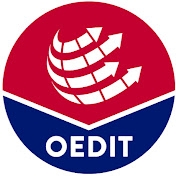CU Boulder innovators, JILA physicists, and university startup ColdQuanta are featured in a new film from the Colorado Office of Economic Development and International Trade (COEDIT) promoting Colorado's extensive quantum ecosystem.
The film interviews CUbit Director Jun Ye (Physics, JILA Fellow, NIST Fellow), Associate Research Professor Ana Maria Rey (Physics, JILA Fellow), and other members of CU Boulder's quantum community about the importance of quantum research and Colorado's prominence in the field. Dan Caruso, interim CEO of cold-atom quantum tech startup ColdQuanta—co-founded by Professor Dana Anderson (Physics, JILA)—is also extensively featured.
You can watch the film here, or below.
Article is taken from the CUbit Quantum Initiative website.



 The Physics Frontiers Centers (PFC) program supports university-based centers and institutes where the collective efforts of a larger group of individuals can enable transformational advances in the most promising research areas. The program is designed to foster major breakthroughs at the intellectual frontiers of physics by providing needed resources such as combinations of talents, skills, disciplines, and/or specialized infrastructure, not usually available to individual investigators or small groups, in an environment in which the collective efforts of the larger group can be shown to be seminal to promoting significant progress in the science and the education of students. PFCs also include creative, substantive activities aimed at enhancing education, broadening participation of traditionally underrepresented groups, and outreach to the scientific community and general public.
The Physics Frontiers Centers (PFC) program supports university-based centers and institutes where the collective efforts of a larger group of individuals can enable transformational advances in the most promising research areas. The program is designed to foster major breakthroughs at the intellectual frontiers of physics by providing needed resources such as combinations of talents, skills, disciplines, and/or specialized infrastructure, not usually available to individual investigators or small groups, in an environment in which the collective efforts of the larger group can be shown to be seminal to promoting significant progress in the science and the education of students. PFCs also include creative, substantive activities aimed at enhancing education, broadening participation of traditionally underrepresented groups, and outreach to the scientific community and general public.